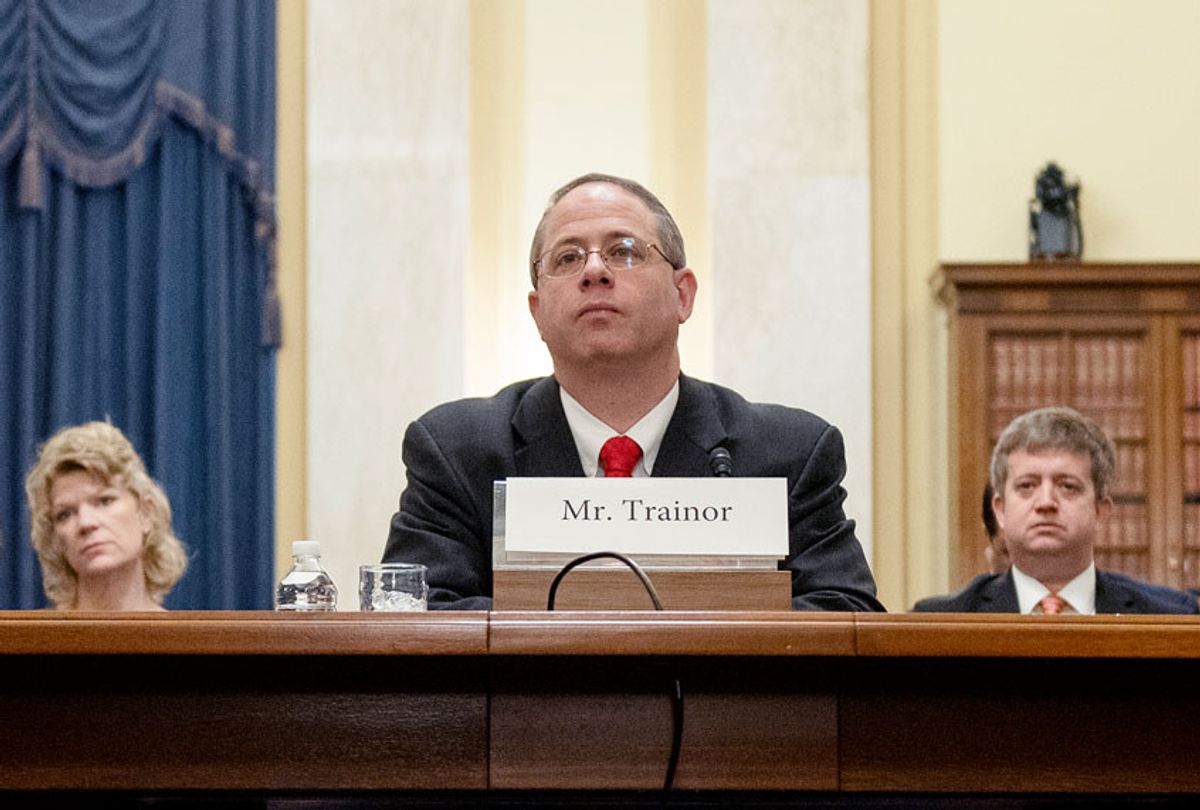After months in the political wilderness, the federal agency that polices campaign money is back in business.
Sort of.
The U.S. Senate's confirmation today of Republican Trey Trainor means the Federal Election Commission, which since Sept. 1 has lacked enough commissioners to conduct its highest-level affairs, may again legally enforce campaign finance laws, make new rules, offer formal advice, complete investigations and approve audits.
It may even soon host its first public meeting since last summer.
But the FEC will likely emerge from its unprecedented work stoppage diminished and divided — just in time for the teeth of a presidential election season teeming with money.
Consider that:
- The FEC has a crushing backlog of enforcement cases waiting for it — 350 as of this month, per FEC staffers. Some old cases have or will soon hit a statute of limitations. Newer complaints involving Election 2020, including a few that involve President Donald Trump, are likely to wait until after Election Day before the commission resolves them.
- The COVID-19 pandemic has throttled routine agency work and limited the flow of normal business, as it has for many federal agencies.
- Trainor aside, FEC commissioners Caroline Hunter, a Republican; Ellen Weintraub, a Democrat; and Walther, a left-leaning independent, have collectively served 31 years past the expirations of their six-year terms. Hunter and Weintraub have long clashed with one another and rarely agree on prominent matters before them. Trump has expressed no interest in replacing the three holdovers or filling two other long-vacant FEC commissioner seats.
- Senate Democrats are steamed that Trump has refused to nominate their vetted choice, Shana Broussard, to fill one of the bipartisan agency's other vacant seats. Broussard, a staff attorney for Walther, would become the FEC's first African American commissioner, if appointed. (Presidents from both parties have typically, but not always, nominated FEC commissioners in bipartisan pairs.)
- With Trainor aboard, the six-seat commission will only have a bare minimum quorum of four commissioners, meaning it would again shut down if one of the other commissioners resigns, retires or otherwise can't attend to his or her duties.
- Trainor and the three holdover commissioners must vote together, without dissension, to affirm big decisions, which require at least four votes. Trainor is a former Trump attorney who has long supported minimal campaign finance regulations. At his Senate confirmation hearing in March, Trainor vowed to approach his work at the FEC in "an objective and methodical manner." He testified that the "touchstone for all regulation of political speech is the First Amendment." A quorum "won't matter if any one commissioner simply decides to be obstructionist," said former FEC Chairman Bradley Smith, a Republican who now leads the pro-campaign finance deregulation Institute for Free Speech.
Hunter, the FEC's chairperson, said Trainor will bring to the commission the "practical perspective" of a professional election law attorney who's long worked with political parties and candidates.
Weintraub, an outspoken FEC veteran of 18 years who generally supports strong campaign finance regulations, offered this olive branch: "I hope to have a constructive working relationship with Trey. I hope he will be interested in seeking common ground."
The FEC has only lost a quorum of four commissioners one other time in its 45-year history: during a six-month period from late 2007 to the middle of 2008.
"We hear a lot about the FEC and its deadlocked decisions and its inability to get anything done. But without a quorum, the FEC can do nothing," Sen. Roy Blunt, R-Mo., said during Trainor's confirmation hearing in March.
Mike Sullivan, retired director of Massachusetts' Office of Campaign and Political Finance, suspects the newly rebooted FEC, with Trainor, will act much like the FEC of years past.
"Cosmetically, it lets everyone think the FEC can now fully function," Sullivan said. "Substantively, it doesn't change a thing."
Earlier this month, Sen. Amy Klobuchar, D-Minn., criticised Trainor for spending his legal career in Texas "arguing that people shouldn't have to disclose political spending and working to stack the decks against voters by gerrymandering districts to dilute minority voting power." (Trainor defended his work on Texas congressional redistricting during his Senate hearing in March.)
Before today's 49-43 vote along party lines, Klobuchar implored her Senate colleagues to oppose Trainor — a man, she said, who "doesn't believe in basic campaign finance law" and who "consistently worked to dismantle the rules that keep corruption out of our system."
Trainor's appointment was nearly three years in the making: Trump first nominated him to the FEC in September 2017, but the Senate never considered Trainor's nomination, which expired at the end of that year.
Trump tried three more times before the Senate finally granted Trainor a confirmation hearing in March.
Now that Trainor is an FEC commissioner, Hunter said she's aiming to conduct a public FEC meeting — a videoconference version, at minimum — in June.
Chief on Hunter's to-do list now that the FEC has a quorum: defend the agency against several federal lawsuits filed in recent months. Each lawsuit alleges that the FEC violated the law by failing to act on pending complaints.
Hunter and Smith, the former FEC chairman, both also agree that the president and Capitol Hill also have work to do.
"I'd encourage the Senate and the White House to approve a new slate of commissioners," said Hunter, adding that cleaning house at the FEC — including her — would help an agency that "needs fresh perspectives."



Shares